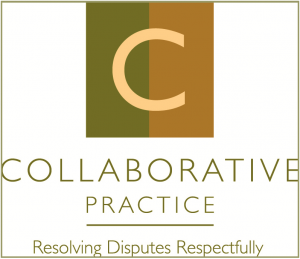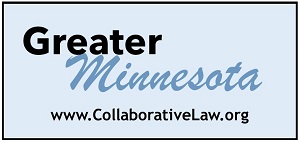Since its inception in Minnesota 30 years ago, the Collaborative Divorce process has helped families in all 50 states and more than 25 countries find a healthier way to end their marriage without going to court. However, this respectful alternative to contested divorce has largely remained unavailable to families in greater Minnesota. The recent advent of virtual practice and Zoom meetings has changed this landscape and opened up new possibilities for the statewide availability of Collaborative Divorce.
The Collaborative Divorce process was created in 1990. Minnesota attorney Stu Webb, discouraged by the emotional and financial side effects of adversarial divorce, piloted a new approach in which attorneys would be involved for settlement purposes only. Because Collaborative divorce attorneys were disqualified from going to court, these attorneys needed to become effective and creative negotiators and problem solvers. The result was a process in which divorcing couples could design customized outcomes for their families and not go to court.
As the Collaborative Divorce concept grew throughout North America and the world, it evolved into a team process. By using specially trained neutral experts in child development, family systems and divorce-related finance in addition to their Collaborative attorneys, clients are able to bring this added expertise to their parenting and financial resolutions, and likely reduce the financial cost of their divorce. The process is tailored to the needs of the family using professionals based on the skills and expertise they need.
It has been an unfortunate reality for accessibility that specially trained Collaborative professionals are typically concentrated in metro areas, including in Minnesota. But with the social distancing required by the pandemic, almost all divorce professionals are working with and representing clients online, typically through Zoom meetings. This means that a couple’s distance from Collaboratively trained professionals is no longer an obstacle. Individuals in greater Minnesota, can now have access to a full Collaborative team without leaving their homes.
To learn if a Collaborative Divorce is right for you and your family, please visit the website of the Collaborative Law Institute of Minnesota at www.collaborativelaw.org. There you will find detailed information about the Collaborative process, as well as names and bios of Collaborative professionals who practice this family-friendly, problem-solving, and future-focused process. Collaboratively trained professionals will be happy to offer you free informational meetings via teleconferencing to help you make the decision about whether this process, and a particular attorney or neutral professional, feels right for your needs.
Collaborative Practice Highlights:
- The entire process is legally and ethically done outside of court
- The result of the process is customized to the particular needs of a divorcing couple and/or family
- Clients can build a team of Collaboratively trained attorneys, neutral financial experts, mediators and mental health professionals (coaches and child/family specialists) who focus on problem solving and dispute resolution
- Collaborative professionals can offer specialized ala carte services in specific areas of particular need for clients, e.g., financial plans, parenting plans, conflict resolution, preparation and review of legal documents, and more.
- Collaborative Law Institute of Minnesota (CLI) website: collaborativelaw.org
- Find a Professional: https://www.collaborativelaw.org/find-a-professional/
- CLI Blog: collaborativedivorceoptions.com
- CLI Mailing address: 4707 Highway 61 N, #217 | White Bear Lake, MN 55110
The Collaborative Law Institute of Minnesota and the North Dakota Collaborative Law Group are nonprofit organizations focused on transforming the way families divorce by helping them create customized solutions and stay out of court. For more information or to find a Collaborative professional near you visit www.collaborativelaw.org (CLI) or www.nddivorce.com (NDCLG)
About the Author:
 Shared by the Collaborative Law Institute of Minnesota
Shared by the Collaborative Law Institute of Minnesota
Public Education Committee










